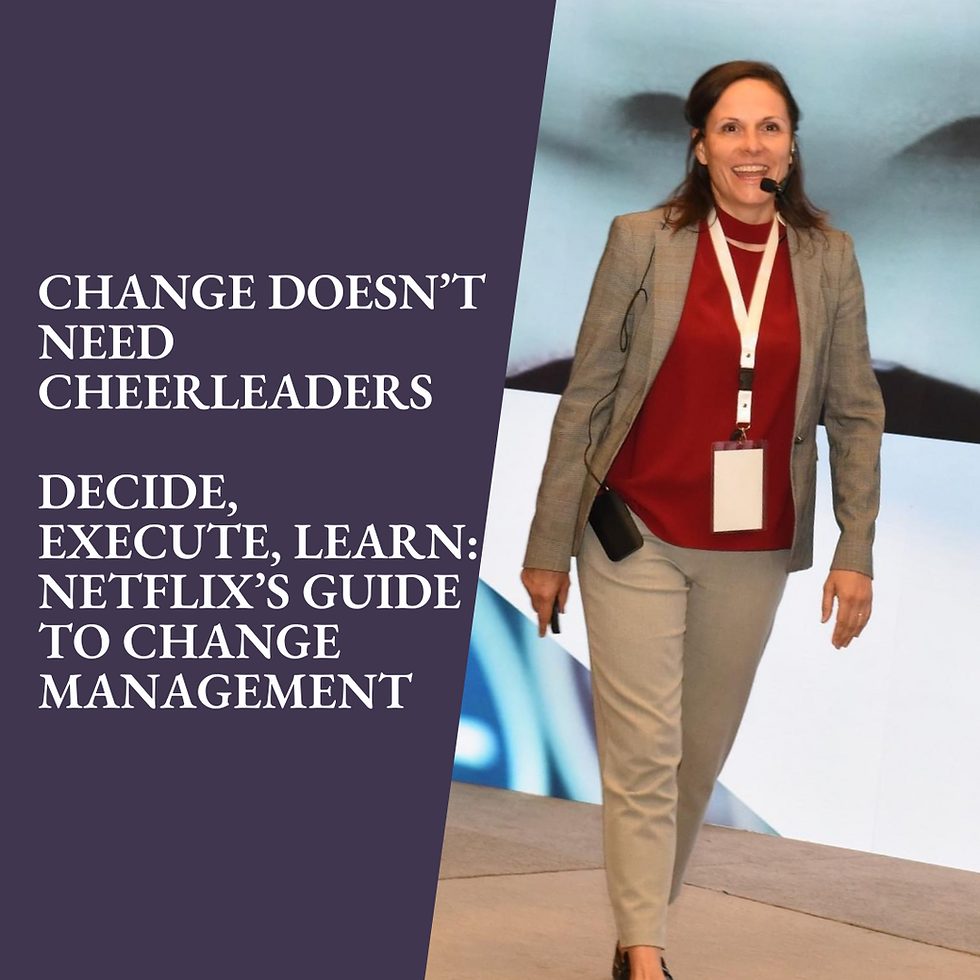It is time to put Talent back into Talent Development
- Szilvia Olah

- Aug 21, 2021
- 3 min read
Updated: May 10, 2022
Have you noticed how talent has disappeared from talent development programs? When was the last time you, as a manager/leader, have stopped, looked at your teams and asked, "What talent do they each have?"
Yes, that's right. Talent is not the person that we are led to believe in at organizations. Talent is natural aptitude or skill. In more detail: Talent is naturally recurring patterns of thoughts, feelings, or behaviour that can be productively applied.
Right, now that we cleared that one up, tell me something. When was the last time you, as a manager or talent development professional, designed development programs that focused on developing your team's naturally recurring patterns of thought, feeling, or behaviour?
I'll tell you when. Unfortunately most likely never!
We at organizations are obsessed with designing training and development programs that exclude talent and solely focus on the naturally NOT occurring patterns of thought, feeling, or behaviour. Because if they occurred naturally, you wouldn't need the training program, right? Wrong!
We have developed this false belief that learning is a process of filling up space in one's head or fixing weaknesses. The commonly held conviction that learning is input from the outside world in the form of data, the opinion of others, or the dreaded feedback is wrong. And I immediately give you an example. Did learning occur the last time you were presented with company data? When you were given feedback? Or when you have read somebody's conflicting opinion on a certain topic? Probably not. What happened is that you acquired knowledge and information, but that doesn't equal learning. Learning is the application of knowledge and/or change in behaviour.
"As it turns out, learning is much less about putting something in that isn’t there and much more about manifesting something that is already there, within you. Most learning is insight – it’s generating recognition from within." Marcus Buckingham
Learning is emergent from within and that requires the presence of natural talent.
Now you understand why traditional "talent" development programs actually impair learning. Because that's what they do. We are constantly being told to "be better at this, "improve your skills of...", "you need to communicate better", etc.. You get it, right? We are constantly told to be better at something that doesn't come naturally to us. This is draining and demotivating.
Although skills and knowledge are important to learn, talent is always the most important if you want successful people. The reason is that talents are innate and cannot be acquired, unlike skills and knowledge. For example, a salesperson can learn products' features (knowledge), can be trained to ask the right open-ended questions (a skill), and can practice making a sale (investment). However, the innate tendency (talent) to push a customer to commit at the right moment, in exactly the right way, must be naturally occurring and cannot be learned. If you take the sales example, you have an individual on your team who has all the knowledge and the skills, yet that aptitude for selling is missing; you will not get far with that person if you send him or her for sales training programs. The program would beat the theory into the person, but the application will almost definitely fail to follow. It is torturous to the person and will lead to the feeling of inadequacy.
The best thing to do in such a case is to identify the person's existing talents and channel them to facilitate application. For example, the person doesn't have the innate tendency (talent) to push a customer to commit at exactly the right moment, but he/she is extremely strong in building relationships that can also lead to sales deals. If you were in charge of this person's development, you would not be sending him/her to a training program that teaches "the right time to close a sales deal", but instead you would be having regular chats about how to deploy and magnify his/her relationship building ability to close deals.
Let's put TALENT back into Talent Development before the global workforce conclude they are talentless.

.png)



Comments